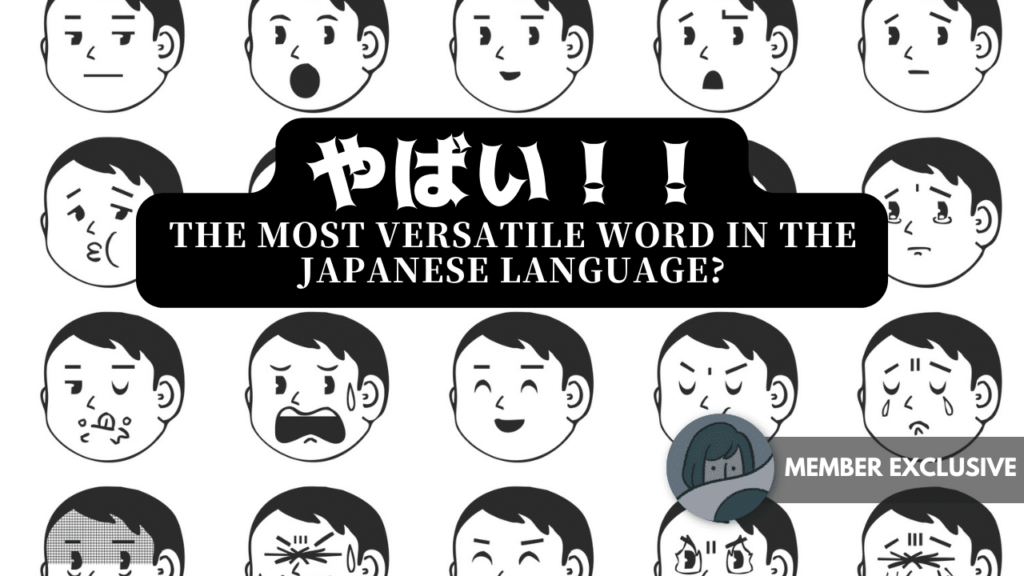[ad_1]
It’s often claimed that “f*ck,” one of the most offensive words in the English language, is the most versatile word in any modern lexicon. It’s true, the F-word can be used to express a wide range of feelings and concepts, from its actual verbal state to innumerable adverbs and exclamations. One can f*ck about, tell someone to f*ck off, or have a f*cking great midday nap, to name only a few examples. The assumption, however, that other languages lack such multi-use vocab – words so adaptable that you can use them to express exact opposite sentiments without batting an eye – isn’t exactly true. After all, just look at the Japanese language. Just look at “yabai!”

“Yabai” (やばい, often stylized ヤバい) actually shares much in common with “f*ck.” The major difference, obviously, is that yabai isn’t really an offensive word. (While Japan lacks expletives in the English sense, it does have plenty of rude words – and taboo ones as well.) It is, however, a very slangy one, often associated with youth culture. An extremely prominent reaction word, yabai is also ridiculously versatile. Let’s take a look at its definition(s) in the ever-popular Japanese-English dictionary site jisho.org:

So, yabai ranges from dangerous to awful to amazing to unhinged. Amazingly enough, though, this is just scraping the surface of the depths of yabai. Let’s go even deeper.
Yabai: That’s Crazy, Man
The first place to start when it comes to a deeper understanding of a word’s place in a lexicon is to look at its etymology; its origins. Yabai has an interesting one.
It’s said that yabai originated in the world of thieves and ne’er-do-wells that populated the darker corners of Edo era Japan. (1603-1867.) It developed from the word yaba (厄場, やば), an archaic term for jailhouse. In the roguish lingo of Edo lawbreakers, yabai was employed to warn compatriots that they might be in danger of being caught in a criminal act. The word outlasted the fall of the samurai and the modernization of Japan; it escaped its original sketchy niche and exploded into popular usage following World War II. At first, yabai maintained its original sense of connoting approaching danger. [1] As we’ve seen, though, the word has taken on a number of contrasting meanings in the decades since.

Yabai truly took on its second life once it emerged as a wakamonokotoba (若者言葉), a word in vogue with young people. This was the point where its uses split not only in twain – but, seemingly, into well over two-dozen separate meanings.
The Multivaried Madness of Yabai
Want to see just how many ways you can use the word? Take a look at this handy-dandy chart compiled by Twitter user @kenlife202010.
[ad_2]
Source link


